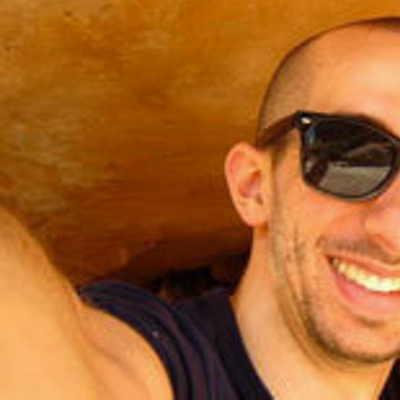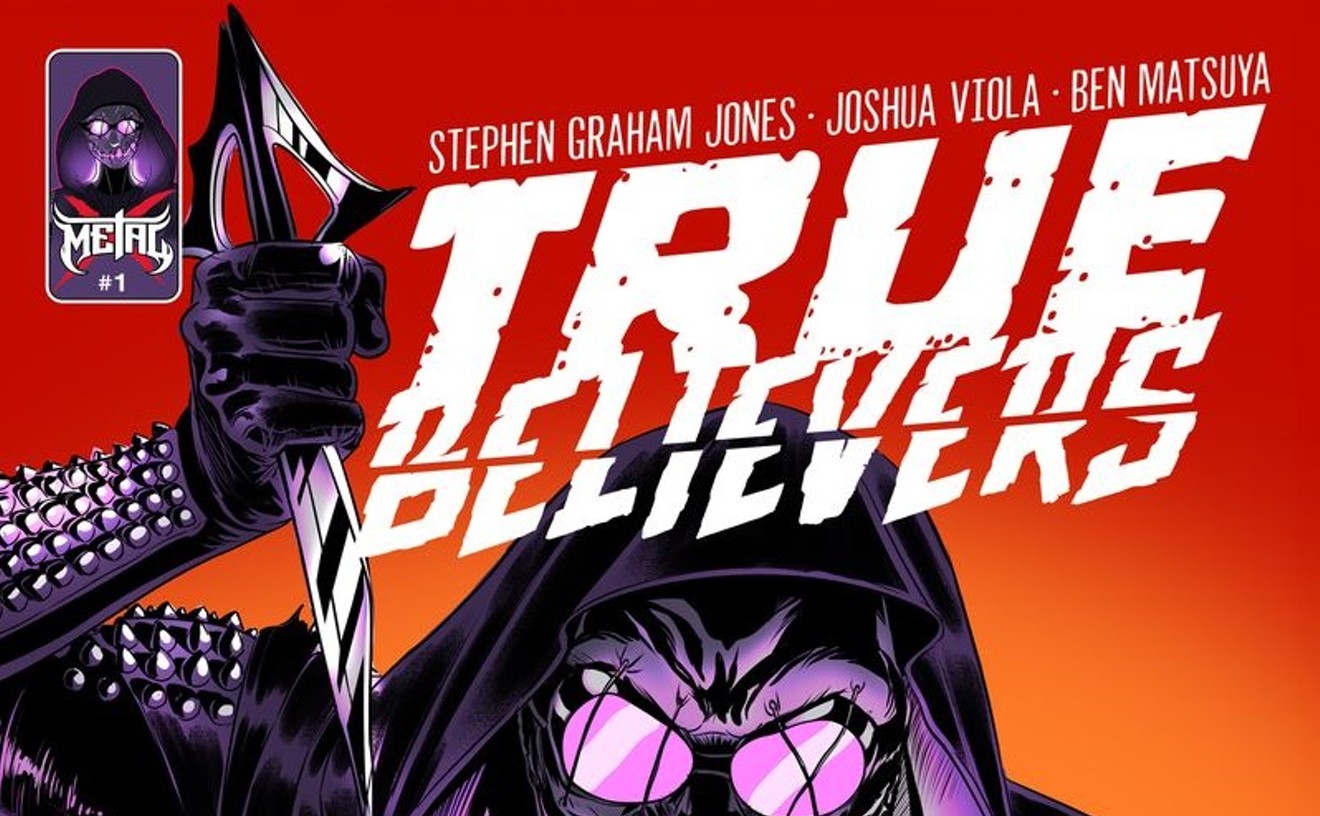It sounds like a scene from a video game, but we're nowhere near a TV. Instead, the mystery is unfolding at Puzzah, a new business in LoDo offering an unusual twist on the live escape-the-room games just beginning to establish themselves on America's shores.
As the name suggests, live escape-the-room games are a type of problem-solving challenge in which players attempt to piece together a way out of a locked chamber. The games originated in Asia and Europe, and are increasing in number and popularity in the United States; Puzzah, which opens on Halloween with its first room, "Tick Tock," is the second venue in metro Denver, after Centennial's Clue Room. A third business, Trapped in a Room With a Zombie, is scheduled to open its doors in November.
See also: Aurora Steampunk Board Game Clockwork Kingdom Raises Funding on Second Try
Derek Anderson and Sarah Cai, the married couple which accounts for two-thirds of Puzzah's ownership, discovered the genre in the early 2010s while living in London. Cai and Anderson's first game, Hint Hunt, sent players searching through a series of rooms in a scavenger-hunt-style adventure.
"You would look around the drawers to find some papers, and you would find on page 272 there was a circled word that would get you into the next room," recalls Anderson. Over the next year or so, the pair noticed the games popping up in cities around Europe and Asia, including Tokyo, Hong Kong and more.
But even as the escape-the-room phenomenon gained steam, Anderson and Cai found themselves "turned off by how gimmicky they had become." With just one shared goal, breaking out of the game room, the experiences tended to blend together.
At the same time, the increased availability of cheap microcontrollers and 3D printers were beginning to make more complicated, computer-controlled puzzles feasible.
"A whole bunch of technology became available much, much more inexpensively to consumers," says Anderson. "And with that in mind it started to become, like, why am I providing you with the information to open up a padlock?"
Even as a duo, Cai and Anderson complement each other's skills. Cai, a graphic designer by trade, handles the branding and aesthetic aspects of Puzzah. Anderson's background is in software design: He got his start running a successful poker coaching site, before moving on to develop infrastructure for financial services companies. To round out the new venture's leadership, the pair teamed up with Ryan Pachmayer, an old friend of Anderson's who had worked with him in his online gambling days.
"He's excellent at execution," says Anderson. "It's like having a chief of staff who makes sure everything gets accomplished, which is certainly a skill that I lack." Anderson and Cai were living in Washington, D.C. at the time, but contemplating a move to Denver. With Pachmayer on board, the trio began looking for real estate, eventually settling on a storefront in LoDo, on the 1400 block of Blake Street. In May, they relocated to Colorado and got to work.The three founders handled the puzzle design in-house, with Cai working with set designers to assemble the concert hall's backstage. Anderson took the lead on developing the complex electronic and mechanical puzzles that would advance the mystery.
Denver's hacker community was a key source of help throughout the development process. Soon after moving to the city, the partners started visiting makerspaces like the Concoctory and Tinkermill; Cai and Anderson both say it would have been "much more difficult" to figure out the tech behind Puzzah without access to them. They ended up contracting Tom Flock, a member and instructor at Tinkermill, to help them turn their early prototypes into audience-ready puzzles, and plan to bring him on full-time in the near future.
Puzzah spent the months leading up to the launch beta-testing the game, starting with run-throughs by close friends and family. "We had tech failures, we had all sorts of problems," recalls Anderson of those early games. Their next guests were a University of Colorado class on fun, taught by Dave Thomas and Westword MasterMind Andrew Novick, who ran through an improved version of the puzzle before doing a post-mortem on what worked and what didn't.
While nothing in the final version of "Tick Tock" is scary, the immersive nature of the room adds a tension absent from hand-held puzzles or video games. As the clock wound down, some of our team members started to get testy, as if our lives really depended on our success.
When we finally solved the last puzzle (with the help of a hint from Anderson), there were fewer than four minutes left on the clock. A few days later, one friend texted the rest of our team that she had dreamed she was back in the room, trying to disarm the now-real bomb as time ran out.
Puzzah's building has space for five or six more puzzle rooms, and the team hopes to fill all of it, swapping out games every two or three months to provide repeat customers with a fresh experience. (The puzzles, consistent from session to session, don't have much replay value; for that reason, Puzzah strongly discourages guests from taking photos or sharing spoilers online). If all goes well in LoDo, they hope to expand beyond Denver and take their challenges on the road.
"Many escape rooms are geared toward gamers," says Anderson. "We're trying to go beyond that and say that this kind of thing is for everyone. I think the opportunity is there to demonstrate to a wider audience that there's more available to them than just going to the movies or the bar."
Follow @WestwordCulture











